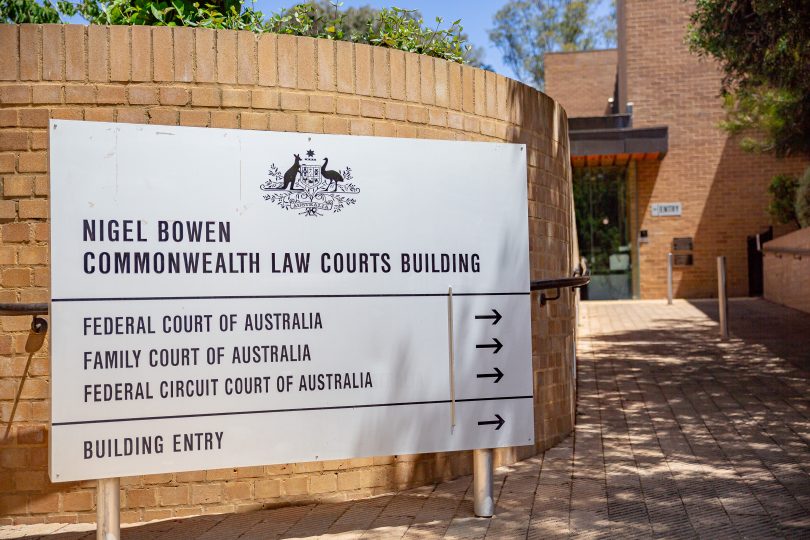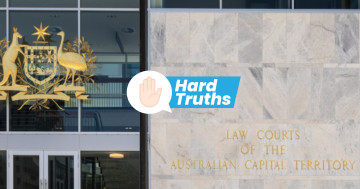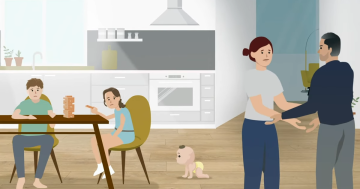
Family law specialists say the Attorney-General’s proposed merger may put families at risk. Photos: Region Media.
Changes to the Family Court proposed by Federal Attorney-General Christian Porter continue to draw the ire of those working in the front line of Family Law, including those in the ACT.
Mr Porter announced in August that he would push ahead with a controversial plan to merge the specialist Family Court of Australia with the lower-level Federal Circuit Court which handles some family law disputes alongside other cases.
The proposal was met with a flood of objections from legal groups around the country, along with a recent open letter signed by more than 60 organisations including the Law Council and peak bodies including the Women’s Legal Services Australia, Community Legal Centres Australia, and the National Aboriginal and Torres Strait Islander Legal Services.
ACT Women’s Legal Centre principal solicitor Claudia McLean was one of the signatories to the open letter and says the proposed merger is not good policy and fears it will put women and children at risk.
“Everyone is in agreement that change is required, there is a need for common rules and one single entry point but scrapping the Family Court is not the answer,” McLean said.
Family law cases are currently heard in both the Federal Family Court and the Federal Circuit Court. The Family Court is set up to deal with only family law cases and is part of an extensive specialised support system. McLean says that a merged Family Court and Federal Circuit Court could threaten this specialised support.
“Many people don’t realise the majority of family law matters do not go to court. The ones that do end up in court are the most complex of cases requiring specialist services and understanding. This is not just about referring matters to a court and interpreting legislation.”
McLean says that many of the cases that go to the Family Court involve family violence, mental health issues, child abuse, drug and alcohol dependency and complex trauma.
“The Family Court uses law-assisted mediation informed by best practice that would be lost with a merger. We are all on the same page that changes need to happen, there are crippling delays, the system is so underfunded,” McLean said.
McLean is worried a lack of specialist judges and services in a merged court would put people’s safety at risk and that women’s voices are being lost in the current confusion around family law.
In 2017, the Federal Government ordered the Australian Law Reform Commission to conduct a wide-ranging review of the system. That report was released earlier this year and recommended sweeping changes. While waiting for the review to be released, the Federal Attorney-General announced the plans to merge the Family Court and Federal Circuit Court. This is in addition to the current parliamentary inquiry of which Pauline Hanson is deputy chair.
“I am concerned that decisions are being made in a political climate. Decisions that could mean the safety of men, women and children will be compromised,” McLean said.
DDCS Lawyers partner and family lawyer Di Simpson echos McLean’s concerns, fearing losing specialists judges will put people at risk.
“This is serious stuff. The current system is stalling under a crushing workload. The Family Court and Federal Circuit Court have been under-resourced by successive governments. A focus on efficiency has put the court’s ability to meet the needs of those in the system. It can’t meet the demand for fundamental services and families are suffering while judges and court staff are under stress,” Simpson said.
Simpson says one solution is an immediate increase in funding.
“You can’t keep asking courts and the people within them to do more with less. With better funding, we can do things differently. We need one point of entry and one set of rules in one unified, specialist family law system.”
Simpson is also calling for more judges and court consultants to take the pressure off the judges. “Cases can then be triaged, with family violence a priority. The safety of children and adult survivors of family violence requires increased specialisation, not less,” Simpson said.
Conflict Resolution Service CEO Melissa Haley agrees specialist services need more funding.
“Cases are getting more complex. We are looking at issues of not just family violence but coercion and control now as well. We need a system that can take into account the best outcomes for families and children in general and workout arrangements, to do this they need specialist help.”
Haley says one specialised Family Court serves to centralise specialist support services.
“Everyone wants an easy system to navigate but we need to take into account the reality – we are dealing with families. Going to court is expensive and can be traumatic. With more money to support services the fewer people may need to go to court.”

Di Simpson from DDCS Lawyers says “We need a system that can take into account the best outcomes for families and children in general and workout arrangements, to do this they need specialist help”.
If you have a family law matter, contact Di Simpson at DDCS Lawyers.
Support and advice are also available through the ACT Women’s Legal Centre and Conflict Resolution Service.





















